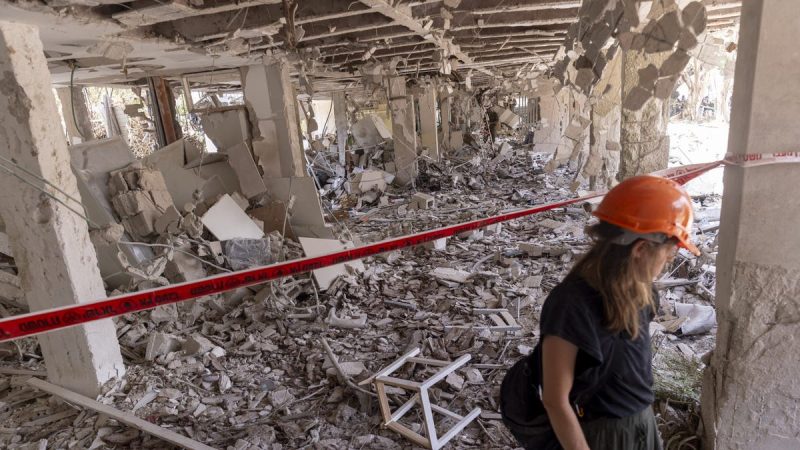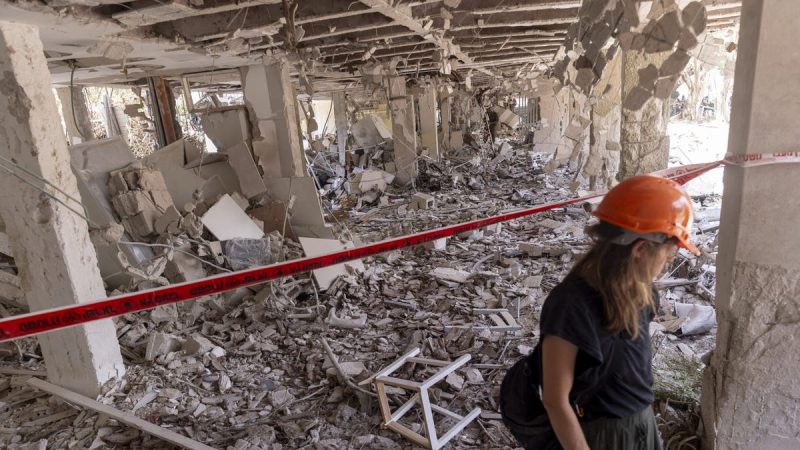
Even amid a fragile ceasefire, Iran continues to warn the United States and Israel that it retains the ability to inflict serious damage if provoked.
Iranian officials have declared the country can sustain daily missile strikes for two years — a claim drawing increasing scrutiny from military experts and Western intelligence analysts.
‘Our armed forces are at the height of their readiness,’ said Major General Ebrahim Jabbari of the Islamic Revolutionary Guard Corps (IRGC), speaking to the semi-official Mehr News Agency. ‘The warehouses, underground missile bases, and facilities we have are so enormous that we have yet to demonstrate the majority of our defense capabilities and effective missiles.’
‘In case of a war with Israel and the U.S., our facilities will not run out even if we launch missiles at them every day for two years,’ he added.
Maj. Gen. Yahya Rahim Safavi, senior military advisor to Supreme Leader Ayatollah Ali Khamenei, echoed that warning: ‘The Zionists know that some of our forces, such as the Navy and the Quds Force, have not yet entered into battle,’ he said. ‘So far, we have produced several thousand missiles and drones, and their place is secure.’
But intelligence analysis suggests Iran’s claims mask serious losses.
Tehran began the conflict with an arsenal of about 3,000 missiles and 500 missile launchers to 600 missile launchers, according to open-source intelligence. By the end of the so-called ’12-Day War’ — a series of attacks by Israel on its military storage warehouses and production facilities followed by U.S. attacks on nuclear sites and Iran’s counterattacks — it was down to between 1,000 missiles and 1,500 missiles and only 150 launchers to 200 launchers.
‘The regime has increasingly been forced to choose between using or losing these projectiles as Israel targeted missile launchers,’ said Behnam Ben Taleblu, Iran expert at the Foundation for Defense of Democracies.
Replacing the missile launchers after Israel degraded their production capabilities will be extremely difficult, according to Danny Citrinowicz, Iran expert at the Institute for National Security Studies.
‘Israel attacked every place that the Iranians manufacture missiles,’ he told Fox News Digital.
Iran may have the capacity to attack Israel with its missiles, but ‘not in the hundreds.’
Could Iran strike the US homeland?
Iranian rhetoric occasionally has floated the idea of striking the U.S. directly, but analysts agree that the threat is far more limited.
‘The theoretical way they can strike the U.S. is just using their capacity in Venezuela,’ Citrinowicz said, referring to Iran’s growing military cooperation with its capital of Caracas. ‘Strategically, it was one of the main goals that they had — to build their presence in Venezuela. But it’s a long shot. It would be very hard to do so, and I’m not sure the Venezuelan government would like that to happen.’
Instead, any retaliatory strike would likely focus on U.S. assets and personnel in the Middle East.
Can Kasapoglu, a senior fellow at the Hudson Institute and Middle East military affairs expert, said Israel’s war aims went beyond missile factories, targeting Iran’s nuclear infrastructure and advanced weapons development.
‘We are not 100% sure about the damage to centrifuges, so we cannot say the nuclear program is annihilated,’ Kasapoglu said. ‘But we can safely assume the nuclear program had a setback for years.’
He added that Israel focused heavily on Iran’s solid-propellant, medium-range ballistic missiles — many of which have ‘very high terminal velocity, close to Mach 10,’ and are capable of evasive maneuvers.
‘That makes them even more dangerous,’ he said.
Still, despite the setbacks, Iran ‘is still the largest ballistic missile power in the Middle East,’ he emphasized. ‘We saw that during the war, as Iran was able to penetrate Israeli airspace — even when Israeli and American interceptors were firing interceptor after interceptor to stop a single ballistic missile.’
Comparing ‘magazine depth,’ Kasapoglu noted Iran still maintains a deeper stockpile of missiles than Israel, even with U.S. assistance, and has interceptors.
Proxy forces and Chinese involvement
The regional threat isn’t limited to Iran’s mainland arsenal. Iran’s proxies, particularly the Houthis in Yemen, remain a potent force.
‘The Houthis are the one Iranian proxy I am really concerned about.’
Kasapoglu pointed to new intelligence accusing Chinese satellite companies of providing real-time targeting data to the Houthis, who have resumed maritime attacks in the Red Sea.
‘Two days ago, they attacked a Liberian-flagged Greek merchant vessel,’ he said.
With advanced Chinese satellite support and hardened anti-ship cruise missiles, the Houthis could destabilize shipping lanes and widen the conflict beyond the Israel-Iran front.
‘Iran still has significant asymmetric capabilities in the maritime domain and transnational terrorist apparatus, but it’s hard to see how deploying these assets would not invite further ruin,’ said Taleblu. ‘Bluster and hyperbole have long been elements of Iran’s deterrence strategy.’
The so-called ’12-Day War’ ended in a U.S.-brokered ceasefire, but the region remains on edge. Iran’s leaders continue to boast about untapped military capabilities, but battlefield losses, manufacturing disruptions and previous counter-attack measures have limited its options.
While Tehran retains the power to project force and threaten both Israel and U.S. regional assets, experts agree that its ability to launch sustained, high-volume attacks has been meaningfully curtailed.
Iran may still be dangerous, but its bark, for now, may be louder than its bite.

